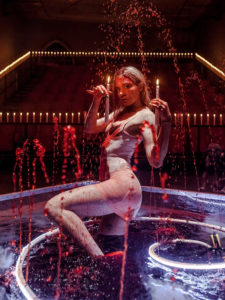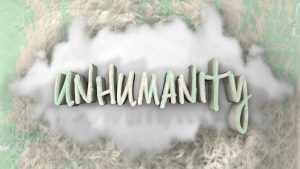“The materials lead me to investigate unknown possibilities,” writes Yein Lee via email, about her attraction to the raw and disparate materials she uses in her sculptures. Trained in traditional painting in Seoul before moving to Vienna to continue her studies at the Academy of Fine Arts, the artist’s approach to art-making appears suspended in conflict between worlds.
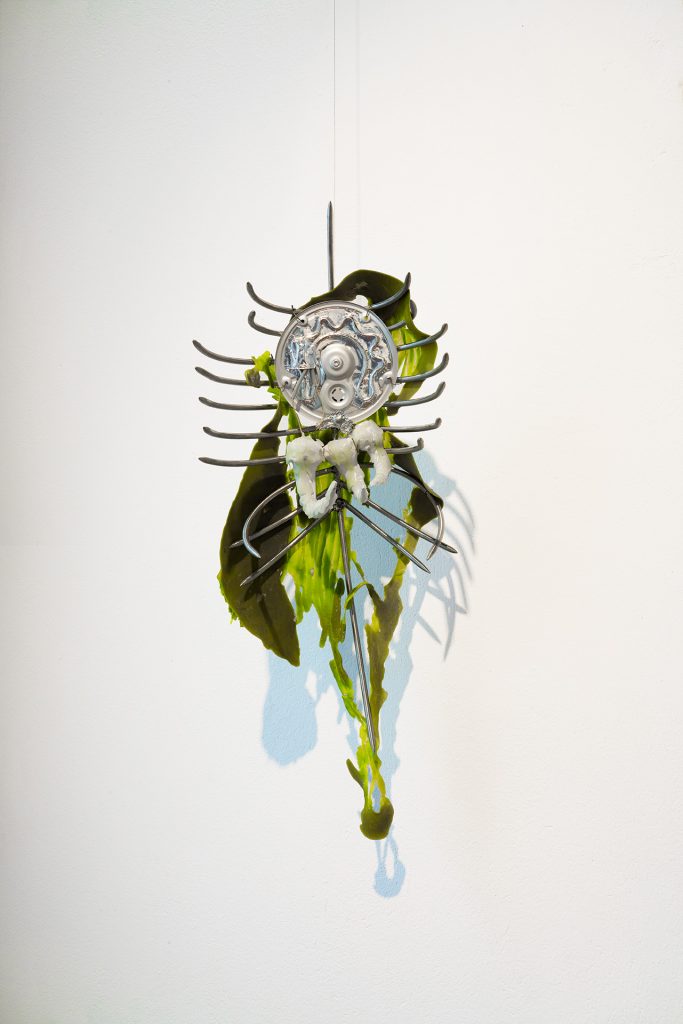
Consisting all manner of contrasting elements—from dyed latex and hot glue, to electronic waste and hair—Lee’s mutant forms come to embody an eerie in-between state and uncanny sentience. They’re objects and organisms that are suspended in a perpetual state of a never-quite-become-becoming, while their construction is simultaneously the result of raw, unruly gesture and a sophisticated, intricate attention to detail. “Whilst I push to shape them into my own language,” she adds about her ever-unfinished science fiction imaginings brought into being with the eye of a painter. “I often fall into their trap, which is where I allow myself to be—in a so-called little abusive relationship toward each other.”
Taking part in 3hd Festival‘s Symbiotic Agencies group exhibition, running at Berlin’s Galerie im Körnerpark from March 15 to May 2, Lee is one of eight artists, collaborations and collectives presenting a cross-section of perspectives around non-human life forms and interspecies cooperation. Her two contributions—’Tong Tar’ and ‘No-Named’—hang on the walls like parts of bisected junk carcasses, their sinewy muscles and bones made up stainless steel, wire, a rice cooker. Inspired by what she calls the 80s cyberpunk reality of South Korea’s culture, gender politics, and industrial architecture, Lee often attempts to problematise a certain capitalist viewpoint, particularly in relation to the democratic accessibility of technology in post-human discourse.
**Why sculpture, and not another medium; is touch and tactility important here?
YL: I’m fascinated with the physical presence of sculpture, which alters sites into other fictional worlds, teleporting viewers. Sculpture delivers a contextualised sense in shared space with the viewer. My sculptures might long for tactility, but I’d rather say that corporeality is more significant to me.
**How does your personal context influence your choice of material and conceptual decision-making?
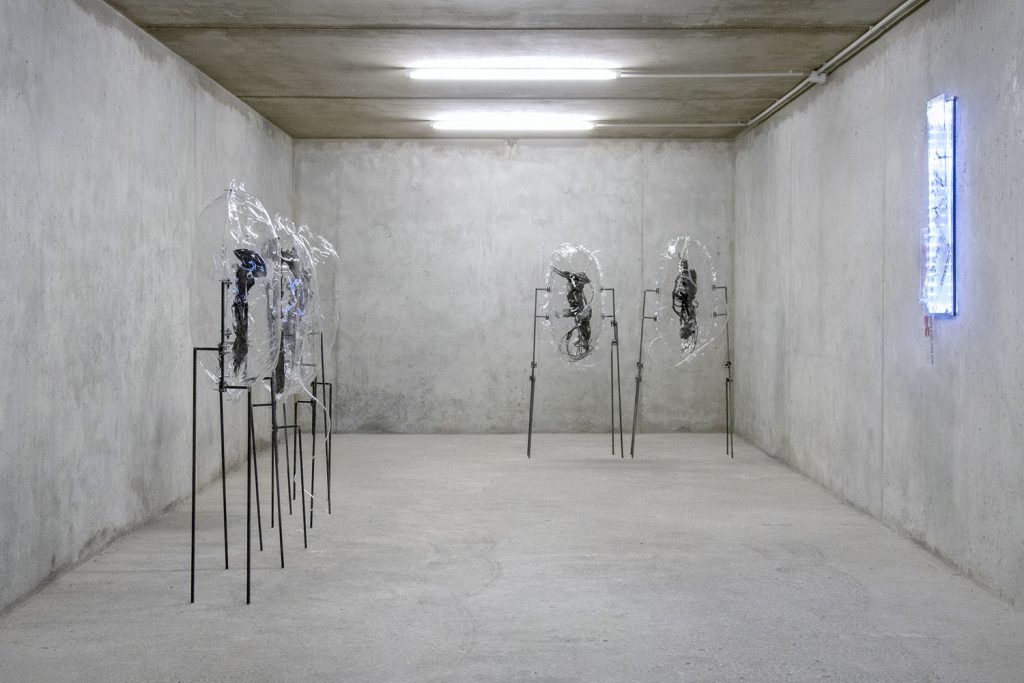
YL: Growing up in South Korea, hyper-consumerism, gender politics, and trashy industrial architecture are influences in my practice. The cyberpunk fiction from the ‘80s has been always a reality to me to certain degree. After I moved to Austria, ironically, I’ve been defined myself as Korean more than ever in Vienna. This foreigner life in my 100-year-old Viennese flat made me realise an absence of romanticism. In my practice, I share a fascination with industrial material, gooey things that have been developed with a spice of brutal attitude, carrying out a certain observation on society.
**There is a firm mix of organic and synthetic materials in your sculptures (eg hair, electronic waste, dyed latex, hot glue), and you expressly state your rejection of this binary between the natural and the ‘unnatural’, can you tell me more about the thinking behind this resistance?
YL: I’ve always lived in a multiplicity rather than the binary world—that is already science-fictionalized. Perhaps this resistance should not be framed as such, because our world is not dualistic anymore. My practice portrays the current society, that our bodies are in an intertwined system, between the organic and the artificial. Besides, I keep dreaming about the promise of technology, which would emancipate the other body’s responsibilities that were socially imposed.
**It brings to mind molecular biology, as well as metaphysics—where both fields assume little distinction between objects, because at the atomic level there is no clear boundary, is this something you think about with your work?
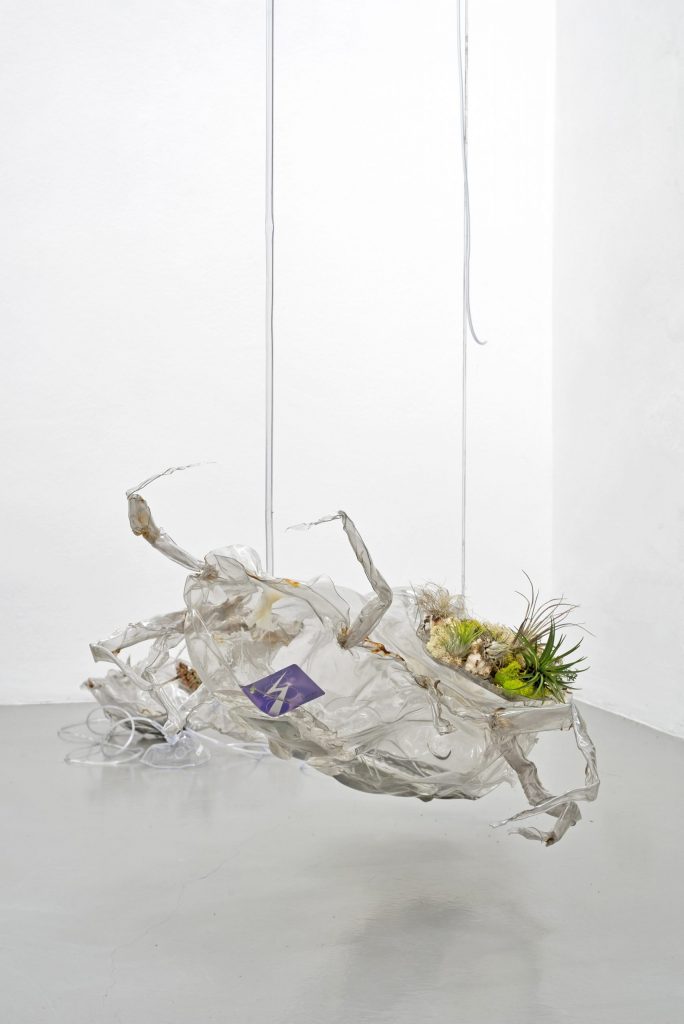
YL: Absolutely, my practice started with a consideration on otherness and the system. Then the question of who decides to be ‘I’, ‘You’, ‘Them’ keeps showing up. I’m not just myself but I consist of lots of microorganisms.
**I find these microscopic interactions particularly interesting in relation to your work, because the notion of ‘objectivity’—and thus the fetishisation of hard science and hard rationalism—is what keeps things particularly material. I would suggest, though, that your work is itself fetishistic (in the sense of its intense focus and attraction to its own materials). Yet, its very existence as a practice that reorients, de-contextualizes and deconstructs conventional taxonomies complicates and undermines this idea of subject-object separation. Would you agree?
YL: I really like that you point out about a fetishistic part of my works, which I often miss in my self-analysis, as it is deeply engaged with my gut-feeling process. I apply my lens of fetishisation on materials but at the same time, I become a sort of mediator who translates them into context. Instead of controlling just with an anthropomorphic perspective by objectifying materials, I let it be as it wants to be—let latex spill, let hot glue drip, let the work go beyond my sketches. When the work is done, it carries metamorphic figuration with its own autonomous agency, which I appreciate a lot. Then you see the subversion of objectification that occurs by fetishising materials.
**There’s a certain body horror in your work that also resonates through the work of the likes of Pakui Hardware and Ivana Bašić, are any of these artists familiar to you and do you relate at all to this comparison?
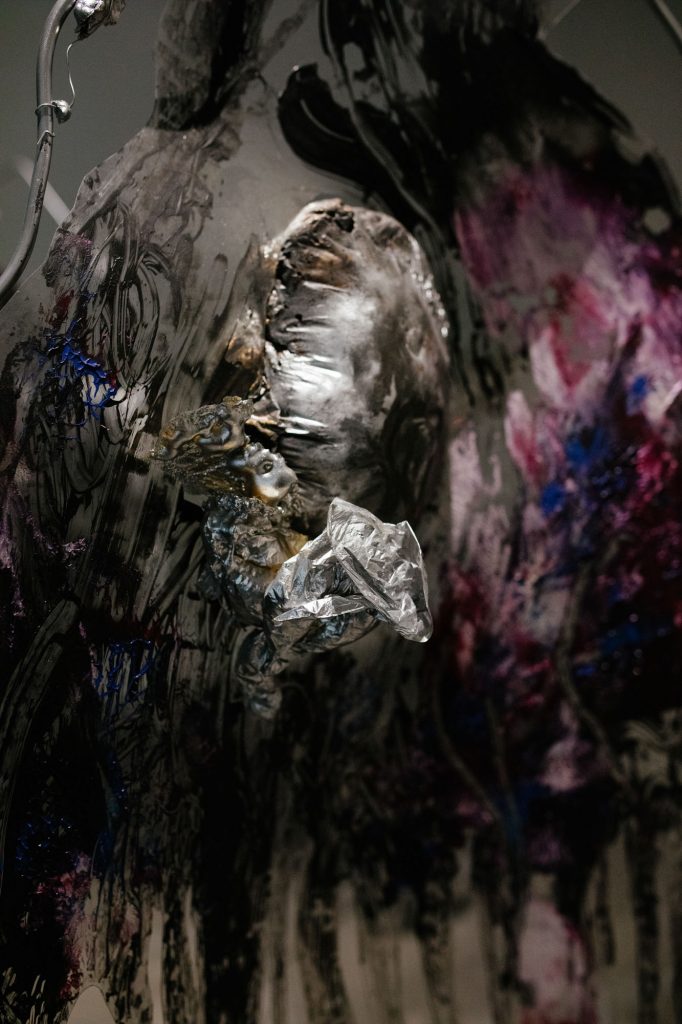
YL: Body horror is such a broad topic that needs to be elaborated by subcategories in the current sense, such as ‘body without organ’, ‘abjection’, or ‘millennial techno-alienation’. I see we share a generational interest, growing up with similar media influences like manga, 90s science fiction movies, but while the works of Pakui Hardware and Ivana Bašić resonate with highly polished production, my pieces still remain raw and painterly.
My work embraces an intuitive process that conveys not only the power of metamorphic body-transgression, but also elements of hope, a reflection on social complexities. The assemblage out of my own elements, a painterly touch, and found objects, all narrate a poetic social critique on the system.**
